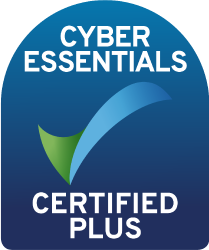Telecommuting is the act of working from home using broadband, internet, email and a telephone. Telecommuting is often called ‘working from home’ or ‘home working’ and is becoming increasingly common as businesses utilise remote working staff.
Teleworking allows members of staff to work from their home, without the need to invest in additional office space, or buy new office furniture and equipment. It also saves employees time and money in commuting to an office.
What are the different types of telecommuting?
Teleworking, by nature, uses modern technology to connect employees from across the country to your main office. Here are a few different technologies that can be used for teleworking:
1. VoIP
VoIP stands for voice over internet protocol. Which sounds complicated, but is essentially using your broadband connection for your voice calls. Typically, a business would have multiple telephone lines, each of which can carry one telephone call.
However, with VoIP, businesses use the internet for these calls. This also means that telecommuters within your business can connect to your businesses centralised telephone system without the need for expensive equipment and telephone lines.
2. Mobile
Many businesses are choosing to provide their employees with mobile phones. These business mobiles can be used by home workers to keep in touch with colleagues and customers. Having business mobiles can be a significantly cheaper option for home workers than providing all your employees with individual VoIP phones.
In fact, many businesses are opting to use our VoIP mobile app, allowing telecommuters to work from home and still make and receive calls as though they were sat in the office.
3. 4G Router
A common issue with teleworking is poor internet connectivity at home. Especially for businesses in Somerset (where we’re based), where the rural broadband speed is poor. However, one way to overcome this issue is to provide your telecommuters with a 4G router, which provides reliable and robust WiFi to their home, even if the fixed line broadband is slow.
4. Email
We couldn’t do a blog about telecommuting without mentioning email. Email is by far the most common method used to communicate with customers, colleagues and prospects. Most telecommuters will have their email on a laptop or computer at home, allowing them to continue as normal.
5. Video calling
An increasingly common telecommuting technology is video calling. Video calling allows telecommuters and office-based staff to communicate face to face. Similar to FaceTime, Skype or WhatsApp video calling.
Businesses are choosing cloud-based telephone systems that support video calling functionality, as it allows them to bring telecommuters into the office, without the need for them to be there physically.
6. VoIP Softphones
Softphones are telephones that use software, rather than physical phone hardware, such as a desk phone. Users can download an app on their laptop, tablet or mobile that acts as an extension of their telephone system. All telecommuters need is an internet connection.
VoIP softphones are a very low-cost solution to telecommuting. Because you don’t need to purchase lots of additional telephones and deskphones for staff working from home.
Why would a business use telecommuting?
There are many reasons why a business would want to use telecommuting. These include cost reduction, increasing staff morale, increased productivity, better use of office space and more. More and more businesses are moving to telecommuting, allowing them to increase their workforce without the need to expand office space. It also helps businesses to branch out across the country without opening new offices.
As more and more businesses move to cloud telephone systems, telecommuting is becoming common practice for many businesses. Find out how your business can enable teleworking with our VoIP telephone systems.






